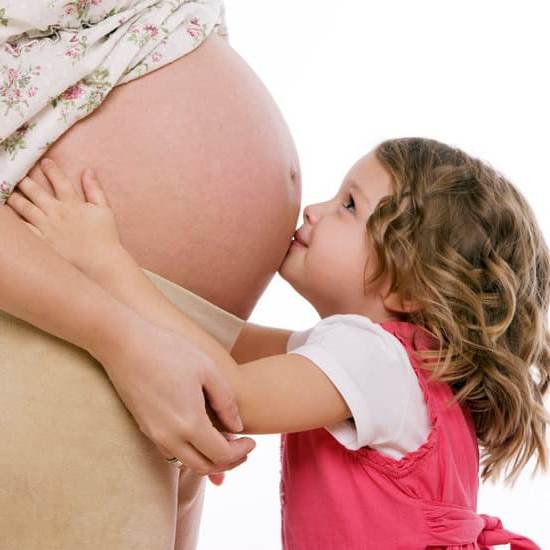During pregnancy, a woman’s body goes through numerous changes to support the growth and development of the baby. It is crucial for expectant mothers to pay close attention to their nutritional needs in order to ensure a healthy pregnancy and delivery. Understanding what nutritional requirements increase during pregnancy is essential for both the mother and the baby’s well-being.
Pregnancy increases the demand for specific nutrients such as iron, folic acid, protein, calcium, and vitamins. Meeting these increased nutritional needs is vital for the proper development of the fetus and for maintaining the mother’s health during this critical time. In this article, we will explore the essential nutrients needed for a healthy pregnancy, discuss the importance of increased caloric intake, and provide dietary recommendations to help expectant mothers meet their heightened nutritional requirements.
In addition to discussing specific nutrients that become more crucial during pregnancy, we will also address the significance of hydration and water intake during this stage. Furthermore, we will offer valuable tips on how pregnant women can ensure they are meeting their increased nutritional needs in order to support a healthy pregnancy. Understanding these essential aspects of nutrition during pregnancy is crucial for expecting mothers who want to prioritize their health and that of their developing baby.
Essential Nutrients for a Healthy Pregnancy
During pregnancy, the nutritional needs of both the mother and the developing baby increase to support healthy growth and development. It is crucial for pregnant women to ensure they are consuming essential nutrients that are vital for a healthy pregnancy.
The Role of Folic Acid and Iron
Two key nutrients that increase in importance during pregnancy are folic acid and iron. Folic acid is crucial for the formation of the baby’s neural tube, which develops into the brain and spinal cord. Adequate intake of folic acid can help prevent neural tube defects.
Iron is essential for producing hemoglobin, the protein in red blood cells that carries oxygen to tissues throughout the body. During pregnancy, a woman’s blood volume increases, so it is important to consume enough iron to prevent anemia.
Protein and Healthy Fats
Protein is also a vital nutrient during pregnancy as it is needed for the growth and development of the baby’s tissues. Additionally, healthy fats such as omega-3 fatty acids are important for the baby’s brain development. It is recommended that pregnant women incorporate sources of lean protein such as poultry, fish, beans, and nuts into their diet, along with healthy fats found in avocados, nuts, and seeds.
Calcium and Vitamin D
Calcium and vitamin D are essential for strong bones and teeth in both the mother and baby. During pregnancy, a woman’s calcium requirements are increased to support the developing fetal skeleton. Vitamin D plays a critical role in calcium absorption and helps promote bone health. Good sources of calcium include dairy products, leafy greens, tofu, almonds, and fortified foods. Getting adequate sunlight exposure also helps with vitamin D synthesis in the body.
By focusing on these essential nutrients during pregnancy, women can better support their own health as well as contribute to their baby’s optimal growth and development.
Increased Caloric Requirements During Pregnancy
During pregnancy, a woman’s body undergoes significant changes to support the growth and development of the baby. Along with these changes, there is an increased demand for nutrients and energy to ensure a healthy pregnancy. One of the key nutritional requirements that increase during pregnancy is the need for additional calories to support both the mother and baby.
It is recommended that pregnant women consume an extra 300-500 calories per day, especially during the second and third trimesters. These additional calories are essential for the proper growth and development of the baby, as well as to support the increased metabolic demands of pregnancy.
Here are some examples of nutrient-dense foods that can help meet increased caloric requirements during pregnancy:
- Whole grains such as oatmeal, quinoa, and brown rice
- Lean protein sources like chicken, fish, beans, and lentils
- Healthy fats found in avocados, nuts, seeds, and olive oil
- Fruits and vegetables rich in vitamins, minerals, and fiber
By consuming a well-balanced diet that includes these nutrient-dense foods, pregnant women can effectively meet their increased caloric needs while also ensuring they get essential nutrients for a healthy pregnancy. It is important to consult with a healthcare provider to determine specific calorie needs based on individual factors such as pre-pregnancy weight, activity level, and overall health.
Importance of Iron and Folic Acid During Pregnancy
Why Are Iron and Folic Acid Important?
Iron and folic acid are two essential nutrients that play a crucial role in supporting a healthy pregnancy. Iron is necessary for the production of hemoglobin, which helps carry oxygen to the body’s cells. During pregnancy, a woman’s blood volume increases, and her body needs more iron to support the growing fetus and placenta.
Folic acid, on the other hand, is important for the development of the baby’s neural tube, which eventually forms the brain and spinal cord. Adequate intake of folic acid can help prevent neural tube defects in the baby.
Meeting Increased Requirements
During pregnancy, the body’s need for iron significantly increases. It is recommended that pregnant women consume around 27 milligrams of iron per day, which is almost double the amount needed by non-pregnant women. Good food sources of iron include lean red meat, poultry, fish, lentils, beans, spinach, and iron-fortified cereals. Additionally, pairing these iron-rich foods with foods high in vitamin C can help enhance iron absorption.
When it comes to folic acid, pregnant women should aim to consume at least 600 micrograms per day. While folic acid can be found in foods such as leafy green vegetables, citrus fruits, and fortified grains and cereals, many healthcare providers also recommend taking a daily prenatal vitamin that contains folic acid to ensure adequate intake.
Risks of Deficiency
Inadequate intake of iron and folic acid during pregnancy can lead to serious complications for both the mother and the baby. Iron-deficiency anemia can result in fatigue, weakness, and increased susceptibility to infections for the mother.
For the baby, insufficient folic acid intake can increase the risk of neural tube defects such as spina bifida or anencephaly. Therefore, it is crucial for pregnant women to pay close attention to their dietary intake of these important nutrients and work with their healthcare provider to ensure they are meeting their increased nutritional requirements during pregnancy.
Protein Needs and the Role of Healthy Fats During Pregnancy
During pregnancy, a woman’s body undergoes many changes to support the growth and development of the baby. This means that her nutritional requirements increase significantly during this time. One of the essential nutrients for a healthy pregnancy is protein. Protein is crucial for the growth of fetal tissue, including the brain and organs. It also helps to increase blood supply, which is necessary for both the mother and the baby.
Some good sources of protein include:
- Lean meats such as chicken, turkey, and beef
- Fish and seafood
- Eggs
- Dairy products like milk, yogurt, and cheese
- Legumes such as beans, lentils, and chickpeas
In addition to protein, healthy fats play an important role in a pregnant woman’s diet. Omega-3 fatty acids are crucial for the development of the baby’s brain and eyes. These can be found in fatty fish like salmon, trout, and sardines. Other sources of healthy fats include avocados, nuts, seeds, and olive oil.
It is important for pregnant women to include a variety of protein-rich foods and healthy fats in their diet to ensure they are meeting their increased nutritional requirements during pregnancy. Along with regular exercise and proper medical care, a balanced diet rich in these nutrients will contribute to a healthy pregnancy and the optimal growth and development of the baby.
Calcium and Vitamin D for Strong Bones and Teeth
During pregnancy, the nutritional requirements increase to support the health and development of both the mother and the growing baby. One of the essential nutrients needed during this time is calcium.
Calcium plays a crucial role in the development of strong bones and teeth for the baby, as well as maintaining bone health for the mother. According to experts, pregnant women aged 19 years and older should aim for 1,000 milligrams of calcium daily, which can be obtained through dietary sources such as dairy products, leafy greens, tofu, and fortified foods.
In addition to calcium, vitamin D is also vital for bone health during pregnancy. Vitamin D helps the body absorb calcium and plays a role in bone mineralization. It is recommended that pregnant women get at least 600 IU (International Units) of vitamin D per day.
Good dietary sources of vitamin D include fortified dairy products, fatty fish such as salmon and mackerel, and egg yolks. However, since it may be challenging to get enough vitamin D from food alone, many healthcare providers also recommend taking a prenatal vitamin that contains vitamin D.
Furthermore, meeting these increased nutritional requirements during pregnancy can positively impact not only the mother’s bone health but also her overall wellbeing throughout pregnancy and postpartum. A balanced intake of calcium and vitamin D can help prevent conditions such as preeclampsia, preterm birth, low birth weight in babies, and postpartum depression in mothers.
| Essential Nutrient | Daily Recommended Intake |
|---|---|
| Calcium | 1,000 milligrams |
| Vitamin D | 600 IU (International Units) |
Importance of Hydration and Water Intake During Pregnancy
During pregnancy, adequate hydration and water intake are crucial for the health of both the mother and the developing baby. Staying properly hydrated can help prevent common pregnancy-related issues such as constipation, urinary tract infections, and preterm labor. The body’s demand for water increases during pregnancy, making it essential for expecting mothers to pay close attention to their fluid intake.
One of the most important reasons for increased water consumption during pregnancy is that water helps form the placenta, which supplies oxygen and nutrients to the fetus. It also carries waste away from the fetus, making it a vital component in fetal development. Additionally, staying well-hydrated can help prevent common discomforts such as swelling and overheating.
Furthermore, proper hydration can also aid in preventing neural tube defects in the baby. Studies have shown that maintaining optimal levels of amniotic fluid in the sac surrounding the baby is crucial to healthy fetal development. This highlights just how important it is for pregnant women to ensure they are consistently drinking enough water throughout each day.
| Effect | Importance |
|---|---|
| Prevention of neural tube defects | Proper hydration aids in this crucial aspect of fetal development. |
| Placental Function | Adequate water intake helps support the formation and function of the placenta. |
| Common Discomfort Prevention | Prevents issues like swelling and overheating that are common during pregnancy. |
Foods to Avoid and Dietary Recommendations for a Healthy Pregnancy
During pregnancy, it’s important to pay close attention to dietary choices to ensure the health and well-being of both the mother and the developing baby. Certain foods should be avoided during pregnancy due to potential risks, while others are recommended for their nutritional benefits.
Foods to avoid during pregnancy include unpasteurized dairy products, raw or undercooked meat and seafood, deli meats, and certain types of fish high in mercury. These foods can pose a risk of foodborne illness or contain high levels of contaminants that can harm the developing fetus. It is also important to limit caffeine intake and avoid alcohol entirely during pregnancy.
On the other hand, there are several dietary recommendations for a healthy pregnancy. A well-balanced diet that includes a variety of fruits, vegetables, whole grains, lean proteins, and healthy fats is essential for meeting increased nutritional requirements during pregnancy. Additionally, incorporating foods rich in essential nutrients such as iron, folic acid, calcium, and vitamin D is crucial for supporting the growth and development of the fetus.
Pregnant women should prioritize consuming nutrient-dense foods that provide essential vitamins and minerals without excess calories. It’s also important to practice safe food handling and hygiene to reduce the risk of foodborne illnesses that can have serious consequences during pregnancy. By following these dietary recommendations and avoiding potentially harmful foods, expectant mothers can support a healthy pregnancy and promote optimal fetal development.
Nutritional Supplements for Pregnant Women
During pregnancy, the nutritional needs of a woman increase significantly to support the healthy growth and development of the baby. While a balanced diet is essential for meeting these requirements, sometimes it may be challenging to get all the necessary nutrients from food alone. This is where nutritional supplements for pregnant women play a crucial role in ensuring that both mother and baby are getting all the essential vitamins and minerals they need.
One of the most important nutritional supplements for pregnant women is prenatal vitamins. These typically contain higher levels of folic acid, iron, calcium, and other essential vitamins and minerals that are vital for the health of both mother and baby. Folic acid, for example, helps prevent neural tube defects in the developing fetus, while iron is needed to support the increased blood volume in pregnancy.
Omega-3 fatty acids are another important supplement during pregnancy as they play a crucial role in brain development and vision in the growing baby. While omega-3 fatty acids can be found in certain foods like salmon and walnuts, taking a supplement can ensure an adequate intake during this critical time. Additionally, vitamin D supplementation may be recommended as it helps support bone health in both mother and baby.
Overall, nutritional supplements for pregnant women can help bridge any gaps that may exist in their diet and ensure that they are meeting their increased nutritional requirements during pregnancy. It’s always important to consult with a healthcare provider before starting any new supplements to ensure they are safe and appropriate for each individual’s needs.
Tips for Meeting Increased Nutritional Requirements During Pregnancy
Meeting the increased nutritional requirements during pregnancy is crucial for both the health of the mother and the development of the baby. It is important to remember that a woman’s body goes through significant changes during pregnancy, and these changes require an increase in certain nutrients to support the growth and development of the fetus.
Understanding what nutritional requirements increase during pregnancy can help expectant mothers make informed choices about their diet and ensure they are meeting the needs of their changing body.
One of the most important nutritional requirements that increase during pregnancy is the need for additional calories. It is recommended that pregnant women consume an extra 300-500 calories per day to support the healthy growth of the baby. These additional calories should come from nutrient-dense foods such as fruits, vegetables, whole grains, lean proteins, and healthy fats.
In addition to increased caloric intake, pregnant women also have higher needs for essential nutrients such as iron, folic acid, protein, calcium, and vitamin D. These nutrients play a critical role in fetal development and can help prevent complications during pregnancy. Meeting these increased nutritional requirements can be achieved through a balanced diet that includes a variety of food groups, as well as through the use of prenatal vitamins or supplements recommended by a healthcare provider.
By being mindful of these important nutritional requirements and making conscious choices about their diet and nutrition, expectant mothers can support a healthy pregnancy and ensure their own well-being as well as that of their growing baby.
Frequently Asked Questions
Which Nutrient Requirement Increases the Most During Pregnancy?
The nutrient requirement that increases the most during pregnancy is iron. This is because the mother’s blood volume expands during pregnancy, and iron is needed to make extra blood for both the mother and the growing baby.
What Needs Are Increased During Pregnancy?
During pregnancy, a woman’s needs for certain nutrients are increased. Apart from iron, she needs more folic acid, calcium, protein, and essential vitamins like vitamin D and vitamin C. These increased needs are crucial to support the healthy growth and development of the fetus.
What Nutrients Are Important for Mothers During Pregnancy?
Several nutrients are particularly important for mothers during pregnancy. These include folic acid, which helps prevent neural tube defects in the baby; calcium, which is essential for bone development; omega-3 fatty acids for brain and eye development; and vitamin D for proper calcium absorption.
Ensuring adequate intake of these nutrients can help support both the mother’s health and that of her growing baby.

Welcome to my fertility blog. This is a space where I will be sharing my experiences as I navigate through the world of fertility treatments, as well as provide information and resources about fertility and pregnancy.





